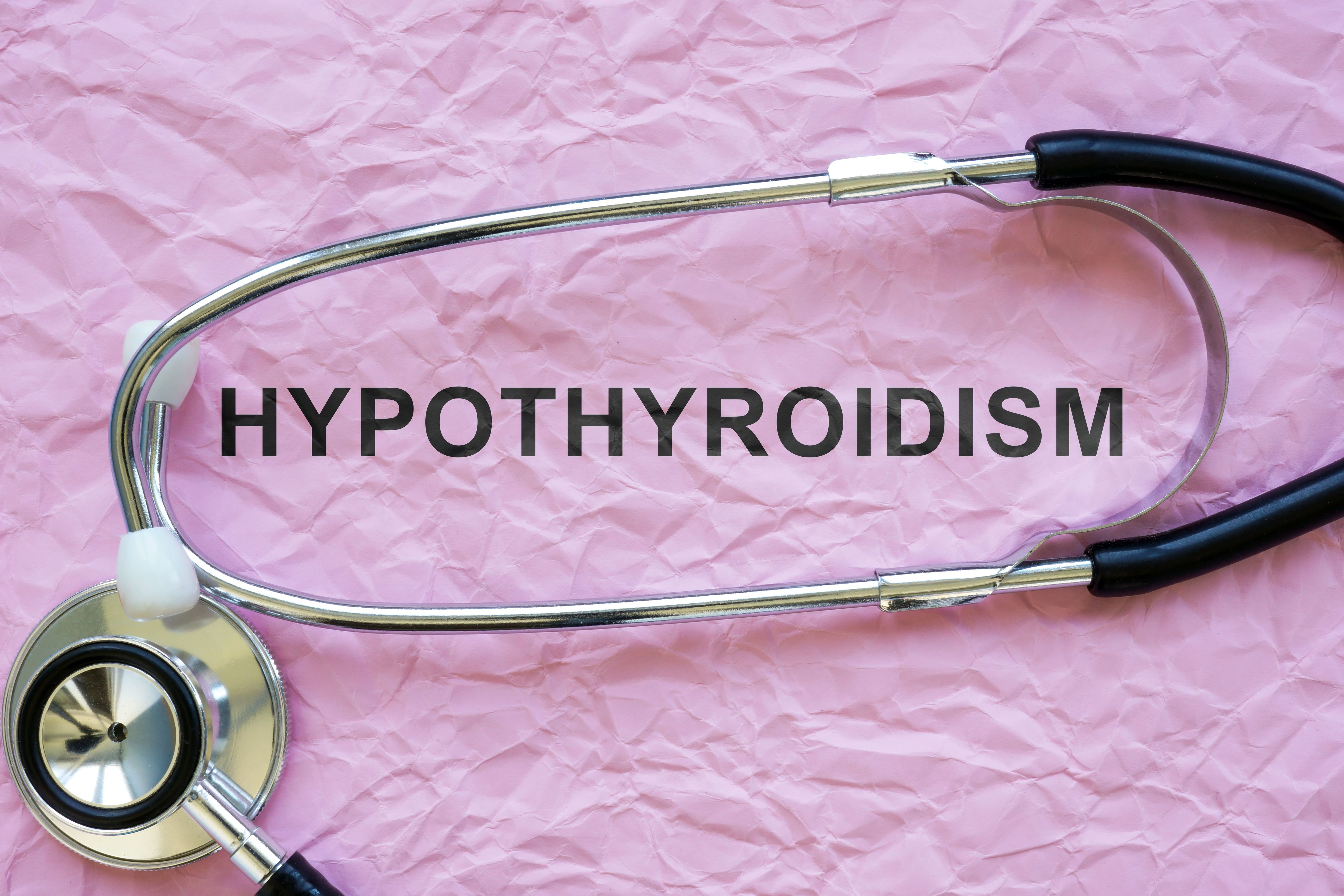- Center on Health Equity & Access
- Clinical
- Health Care Cost
- Health Care Delivery
- Insurance
- Policy
- Technology
- Value-Based Care
Alopecia Areata Linked With Hypothyroidism
However, an analysis suggested that androgenetic alopecia is not caused by hypothyroidism.
Hypothyroidism appears to play a causal role in the development of alopecia areata (AA), according to a new analysis, but it does not appear to cause androgenetic alopecia (AGA).
The report adds new fuel to a contentious debate about the nature of the links—if any—between hypothyroidism and alopecia.1 The study was published in Clinical, Cosmetic and Investigational Dermatology.
An analysis suggests a potential relationship between hypothyroidism and an increased risk for developing alopecia areata | image credit: Vitalii Vodolazskyi - stock.adobe.com

Corresponding author, Fang Liu, MD, of China’s Capital Medical University, and colleagues, wrote that the exact mechanisms underlying AA have not yet been discovered, but they said genetic susceptibility is believed to play a role. AGA, or male-pattern baldness, has more clearly been delineated as an androgen-dependent hereditary trait.
Previous research has shown that AA is more common among people with certain comorbidities, including vitiligo, lupus erythematosus, psoriasis, atopic dermatitis, autoimmune thyroid disease, and allergic rhinitis.2 People with hypothyroidism, on the other hand, are reportedly more likely to experience hair loss, compared with the general population.3
Still, the research has not been clear whether those links between hypothyroidism and hair loss are merely coincidental, or whether there is a potential causal relationship.
“While most studies suggest a correlation between hypothyroidism and AA, there are still some observational studies indicating the absence of a connection,” Liu and colleagues said. Observational studies on the question are “currently scarce,” they added.1
The investigators decided to use Mendelian randomization to try to answer the potential connections between hypothyroidism and alopecia. “In the Mendelian randomization method, genetic variations adhere to the principle of random distribution of alleles to offspring, resembling the design of a randomized controlled trial,” they wrote. However, they said the method also sidesteps some of the common limitations of observational studies, including confounding factors and issues of bias or lack of representation.
The investigators used data from the FinnGen Consortium, a large-scale genomics database that has been used by research organizations and industry partners to identify correlations between genetic variations and patient health data. The database yielded discovery samples including 13,429 hypothyroidism cases (94,436 controls), 767 AA cases (394,105 controls), and 220 AGA cases (219,249 controls).
Liu and colleagues analyzed the potential risk association using several analytical methods, and 3 of those methods showed a significant causal link between hypothyroidism and AA. The inverse variance weighted method found an OR for the causal relationship of 1.34 (95% CI 1.16-1.56; P = .0001). The Mendelian Randomization-Egger method found an OR of 1.56 (95% CI, 1.09-2.23; P = .0240). Lastly, the weighted median method found an OR of 1.34 (95% CI, 1.06-1.69; P = .0140).
“Based on the findings of this study, there is evidence supporting a causal association between hypothyroidism and AA,” they wrote. “These results are substantiated by a series of sensitivity analyses.”
Yet, no such causal relationship was identified between hypothyroidism and AGA, the authors noted.
Liu and colleagues said they believe their study is the first to employ a 2-sample Mendelian randomization analysis to the question of hypothyroidism’s connection to both AA and AGA. They said the study is important because previous research into the potential links has been inconclusive, and at times contradictory.
“These results offer new perspectives on the mechanisms underlying AA and contribute to resolving contentious issues in observational studies,” they wrote.
However, they said high-quality randomized controlled trials will be needed to validate their findings. In the meantime, they said clinicians should understand that patients with hypothyroidism may be at an increased risk of AA. They added that patients with AA should also undergo comprehensive thyroid function assessments.
References:
- Zhang G, Huang X, Li H, Gong H, Zhou Y, Liu F. Relationship of hypothyroidism with alopecia areata and androgenetic alopecia: insights from a two-sample mendelian randomization study. Clin Cosmet Investig Dermatol. 2024;17:1865-1874. doi:10.2147/CCID.S474168
- Chu SY, Chen YJ, Tseng WC, et al. Comorbidity profiles among patients with alopecia areata: the importance of onset age, a nationwide population-based study. J Am Acad Dermatol. 2011;65(5):949-956. doi:10.1016/j.jaad.2010.08.032
- Chiovato L, Magri F, Carlé A. Hypothyroidism in context: where we've been and where we're going. Adv Ther. 2019;36(Suppl 2):47-58. doi:10.1007/s12325-019-01080-8
